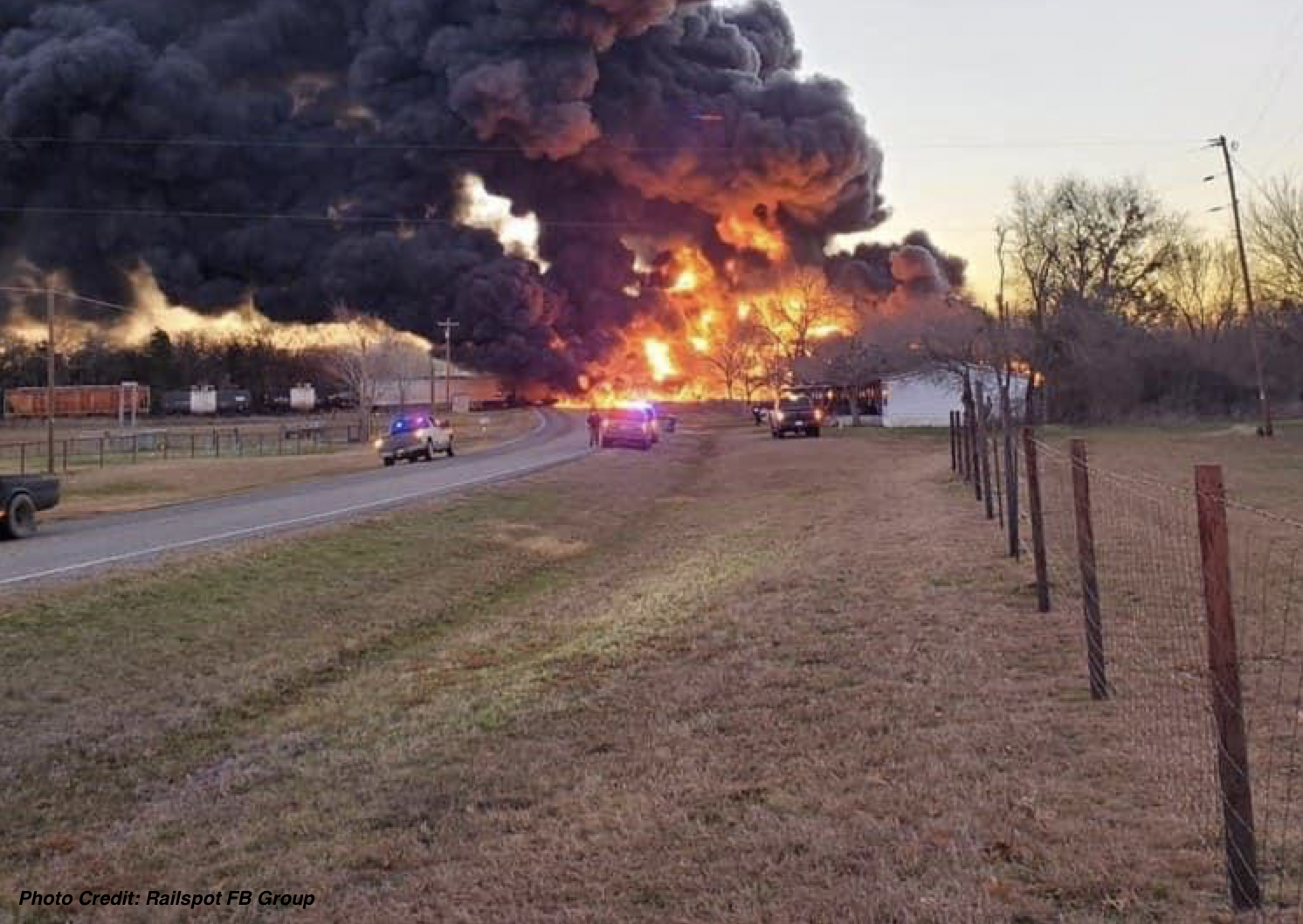 Every time we get behind the wheel in Texas, we must accept a certain level of risk as drivers. Even if we are careful, proactive, and courteous on the road, there is no guarantee that external factors will not cause a car accident. Other drivers, poor weather conditions, or unexpected obstacles on the road can all play a role in the chances of being involved in an accident. Unfortunately, for many of these accidents, there is nothing you can do to prepare outside of staying vigilant and ensuring your vehicle is properly maintained.
Every time we get behind the wheel in Texas, we must accept a certain level of risk as drivers. Even if we are careful, proactive, and courteous on the road, there is no guarantee that external factors will not cause a car accident. Other drivers, poor weather conditions, or unexpected obstacles on the road can all play a role in the chances of being involved in an accident. Unfortunately, for many of these accidents, there is nothing you can do to prepare outside of staying vigilant and ensuring your vehicle is properly maintained.
According to a local news report, a mother was killed after a tragic and sudden accident. The mother and her 17-year-old son were on their way home from a baseball game and were traveling southbound behind a white pickup truck when the tire and wheel from a pickup truck flew off. The tire and wheel went over the highway’s concrete barrier and smashed into the mother’s windshield, killing her instantly. At the time of the accident, the woman’s son was asleep in the front passenger seat. He was transported to the hospital with serious injuries. After the tire and wheel crashed through the mother’s windshield, she lost control and rear-ended a GMC ahead of her, which had four passengers. All four were transported to a local hospital, reportedly in serious, but stable, condition. The accident remains under investigation by local authorities, and the cause of the tire and wheel falling off is not yet clear.
According to officials, although this accident may seem like a freak accident, these types of collisions are more common than you may expect. Based on 2017 data from the National Highway Traffic Safety Administration, 738 people died in tire-related crashes similar to the accident that took the mother’s life. In addition, more than 19,000 people are hurt every year from these accidents, according to the National Transportation Safety Board. Many of these accidents, however, can be preventable or the impact lessened with some easy steps.
 April 2021: Playa del Carmen, Q.R. Mexico— A criminal investigation into the death of a 13-year-old boy at an Xcaret water park has been opened. In a press release, the Attorney General of the Mexican state made the announcement after it was notified of the death of the child via a private hospital.
April 2021: Playa del Carmen, Q.R. Mexico— A criminal investigation into the death of a 13-year-old boy at an Xcaret water park has been opened. In a press release, the Attorney General of the Mexican state made the announcement after it was notified of the death of the child via a private hospital. Texas Injury Lawyers Blog
Texas Injury Lawyers Blog








 The Supreme Court of Texas recently issued an
The Supreme Court of Texas recently issued an  Texas
Texas  During the course of the COVID-19 global pandemic, tens of millions of people across the country experienced moving their work lives, but also their active lives, into their homes and away from typical common spaces such as gyms or exercise studios. As people began both working and attempting to stay active during quarantine and to practice social distancing, demand for at-home exercise options and equipment has been on the rise. But even at home, could these equipment options pose risks to you and your family? Those injured due to a dangerous piece of exercise equipment may be able to pursue a Texas product liability claim against the manufacturer.
During the course of the COVID-19 global pandemic, tens of millions of people across the country experienced moving their work lives, but also their active lives, into their homes and away from typical common spaces such as gyms or exercise studios. As people began both working and attempting to stay active during quarantine and to practice social distancing, demand for at-home exercise options and equipment has been on the rise. But even at home, could these equipment options pose risks to you and your family? Those injured due to a dangerous piece of exercise equipment may be able to pursue a Texas product liability claim against the manufacturer. Texas has specific procedural requirements that parties must adhere to when they proceed with a lawsuit. If these procedures are not followed and prescribed deadlines are ignored, it could result in your case being dismissed or leave you unable to get the compensation you deserve. Thus, hiring an experienced attorney is crucial when you decide to proceed with a lawsuit—especially someone who understands the ins and outs of Texas laws and procedures.
Texas has specific procedural requirements that parties must adhere to when they proceed with a lawsuit. If these procedures are not followed and prescribed deadlines are ignored, it could result in your case being dismissed or leave you unable to get the compensation you deserve. Thus, hiring an experienced attorney is crucial when you decide to proceed with a lawsuit—especially someone who understands the ins and outs of Texas laws and procedures. Every time we get behind the wheel in Texas, we must accept a certain level of risk as drivers. Even if we are careful, proactive, and courteous on the road, there is no guarantee that external factors will not cause a car accident. Other drivers, poor weather conditions, or unexpected obstacles on the road can all play a role in the chances of being involved in an accident. Unfortunately, for many of these accidents, there is nothing you can do to prepare outside of staying vigilant and ensuring your vehicle is properly maintained.
Every time we get behind the wheel in Texas, we must accept a certain level of risk as drivers. Even if we are careful, proactive, and courteous on the road, there is no guarantee that external factors will not cause a car accident. Other drivers, poor weather conditions, or unexpected obstacles on the road can all play a role in the chances of being involved in an accident. Unfortunately, for many of these accidents, there is nothing you can do to prepare outside of staying vigilant and ensuring your vehicle is properly maintained. The COVID-19 pandemic, which has resulted in economic challenges and substantial job loss, is raising concern for a greater spike in child abuse. Nothing is worse than receiving a call that your child has been injured or abused. It is worse when this call comes from their trusted child’s daycare facility.
The COVID-19 pandemic, which has resulted in economic challenges and substantial job loss, is raising concern for a greater spike in child abuse. Nothing is worse than receiving a call that your child has been injured or abused. It is worse when this call comes from their trusted child’s daycare facility. In light of COVID-19, everyone seems to be shopping online more frequently. Whether you’re shopping online to adhere to social distancing concerns or simply out of boredom, Amazon has become an important part of regular online shopping trips in many households. When a product purchased from the online retailer, however, injures someone in your family, is Amazon liable in a Texas products liability lawsuit? Or is the entity or individual who sold you the product responsible?
In light of COVID-19, everyone seems to be shopping online more frequently. Whether you’re shopping online to adhere to social distancing concerns or simply out of boredom, Amazon has become an important part of regular online shopping trips in many households. When a product purchased from the online retailer, however, injures someone in your family, is Amazon liable in a Texas products liability lawsuit? Or is the entity or individual who sold you the product responsible? Pre-prepared and packaged baby food has served as a convenient option for busy parents of infants and toddlers for decades. As parents, we only want what is best for our children, and we should be able to trust that the products we purchase for them to put into their bodies is safe and nutritious. When these food products contain contaminants that could be toxic, this oversight could lead to serious personal injury or even death to those most vulnerable. In certain cases, dangerous food products may give rise to a Texas product liability lawsuit.
Pre-prepared and packaged baby food has served as a convenient option for busy parents of infants and toddlers for decades. As parents, we only want what is best for our children, and we should be able to trust that the products we purchase for them to put into their bodies is safe and nutritious. When these food products contain contaminants that could be toxic, this oversight could lead to serious personal injury or even death to those most vulnerable. In certain cases, dangerous food products may give rise to a Texas product liability lawsuit.